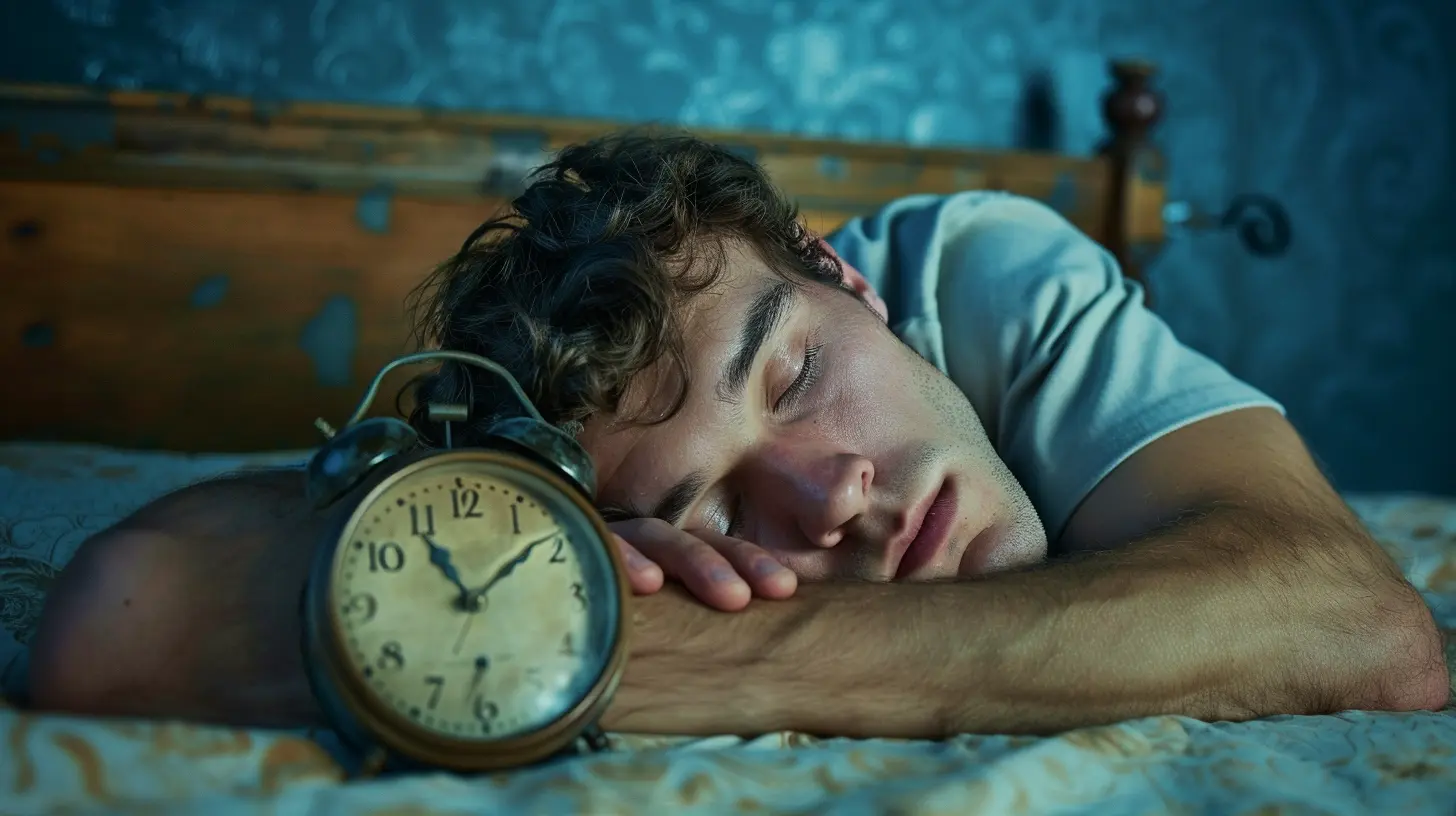Sleep Deprivation: Short and Long-Term Consequences
27 August 2025
Sleep—it’s something we all need but rarely seem to get enough of. Whether you’re pulling all-nighters for work, binge-watching your favorite shows, or scrolling endlessly through social media, skipping sleep can feel like no big deal. But did you know that sleep deprivation doesn’t just leave you feeling groggy? It can have serious short-term and long-term effects on your health, brain function, and overall well-being.
Let’s dive into how lack of sleep wreaks havoc on your body, mind, and even your life expectancy.

What Is Sleep Deprivation?
Sleep deprivation occurs when you don’t get enough sleep to meet your body’s needs. The average adult requires between 7-9 hours of sleep per night, but millions of people fall short of this target regularly. Whether it’s due to lifestyle choices, work demands, or medical conditions, chronic sleep deprivation can have dire consequences.But how does missing just a few hours of sleep affect you? Let’s break it down.

Short-Term Consequences of Sleep Deprivation
Even missing just a single night of quality sleep can have immediate effects on your body and mind. Let’s look at the short-term consequences:1. Cognitive Impairment and Poor Concentration
Ever tried to focus on a task after a bad night’s sleep? It feels like trying to navigate through thick fog. Sleep is crucial for cognitive function, memory consolidation, and problem-solving. Without it, your brain struggles to process information and retain memories.2. Mood Swings and Irritability
Sleep deprivation turns even the nicest people into irritable grumps. When you’re sleep-deprived, your brain's emotional regulation takes a hit, making you more prone to mood swings, anxiety, and even depression.3. Weakened Immune System
Ever noticed you catch colds more easily when you’re running on little sleep? That’s because your immune system depends on sleep to function optimally. Sleep deprivation weakens your body’s defense system, making you more susceptible to infections.4. Increased Risk of Accidents
Driving while sleep-deprived is just as dangerous as driving drunk. Lack of sleep slows reaction time, impairs decision-making, and increases the likelihood of accidents—whether on the road, at work, or even at home.5. Hunger and Weight Gain
Ever felt extra hungry after staying up too late? Sleep deprivation messes with the hormones that regulate hunger (ghrelin and leptin), making you crave high-calorie foods and increasing your risk of weight gain.
Long-Term Consequences of Sleep Deprivation
Skipping sleep consistently takes a severe toll on your body over time. Here’s what happens when sleep deprivation becomes a habit:1. Increased Risk of Heart Disease
Long-term sleep deprivation puts excessive strain on your heart. Studies show that poor sleep is linked to high blood pressure, inflammation, and an increased risk of heart attacks and strokes.2. Higher Risk of Diabetes
Sleep affects how your body processes sugar. Chronic sleep deprivation makes you more insulin resistant, increasing your risk of developing type 2 diabetes.3. Cognitive Decline and Memory Loss
Your brain needs sleep to clean out toxins and consolidate memories. Over time, sleep deprivation can lead to cognitive decline and even increase your risk of Alzheimer’s disease.4. Mental Health Issues
Chronic sleep deprivation is a major contributing factor to anxiety, depression, and mood disorders. It creates a vicious cycle—lack of sleep worsens mental health, and poor mental health makes it harder to sleep.5. Shortened Lifespan
Here’s the hard truth: long-term sleep deprivation is linked to a shorter life expectancy. Your body cannot function optimally without adequate rest, and over time, it takes a cumulative toll on your health.
How to Improve Your Sleep and Avoid Sleep Deprivation
Now that we’ve seen how damaging sleep deprivation can be, what can you do to ensure you’re getting enough quality rest? Here are some practical tips:1. Stick to a Sleep Schedule
Try to go to bed and wake up at the same time every day—yes, even on weekends! This helps regulate your body’s internal clock.2. Create a Relaxing Bedtime Routine
Develop a relaxing pre-sleep routine, like reading a book, taking a warm bath, or practicing meditation. Avoid screens before bed since blue light can interfere with melatonin production.3. Optimize Your Sleep Environment
Ensure your bedroom is cool, dark, and quiet. Investing in a comfortable mattress and pillows can also make a big difference.4. Limit Caffeine and Alcohol
Both caffeine and alcohol can interfere with your sleep cycle. Try to avoid caffeine in the afternoon and reduce alcohol intake before bedtime.5. Exercise Regularly
Regular physical activity can promote better sleep, but avoid intense workouts too close to bedtime as they can have the opposite effect.6. Manage Stress and Anxiety
If stress keeps you up at night, try relaxation techniques like deep breathing, journaling, or guided meditation.Final Thoughts
Sleep deprivation isn’t just about feeling tired—it’s a serious health issue with both short and long-term consequences. From impaired brain function and weakened immunity to increased risk of chronic diseases and even a shorter lifespan, the impact of poor sleep is staggering.If you’ve been running on empty, it might be time to take sleep seriously. Prioritizing those precious hours of shut-eye can make all the difference in your overall health, mood, and longevity.
So tonight, put your phone away, turn off the lights, and get the rest your body deserves. Your future self will thank you.
all images in this post were generated using AI tools
Category:
Sleep HealthAuthor:

Laura Hudson
Discussion
rate this article
1 comments
Tempra Wilkerson
Prioritize sleep for better health overall.
September 19, 2025 at 4:48 AM

Laura Hudson
Absolutely! Prioritizing sleep is essential for both physical and mental health, as it significantly impacts overall well-being. Thank you for your insight!


